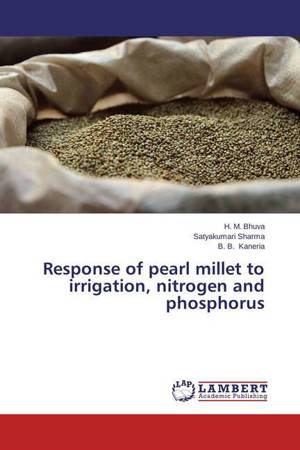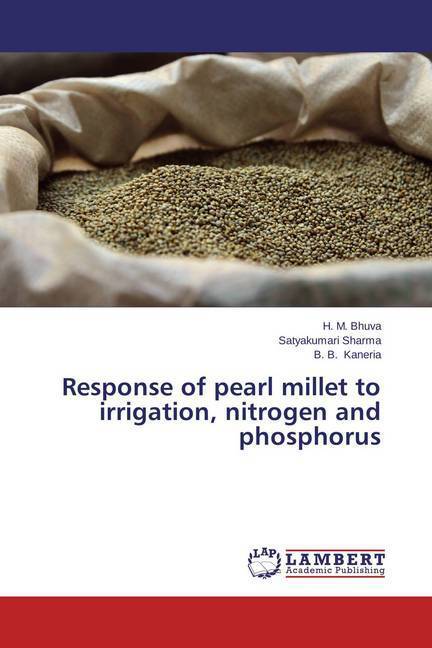
- Afhalen na 1 uur in een winkel met voorraad
- Gratis thuislevering in België vanaf € 30
- Ruim aanbod met 7 miljoen producten
- Afhalen na 1 uur in een winkel met voorraad
- Gratis thuislevering in België vanaf € 30
- Ruim aanbod met 7 miljoen producten
Zoeken
Response of pearl millet to irrigation, nitrogen and phosphorus
H. M. Bhuva, Satyakumari Sharma, B. B. Kaneria
Paperback | Engels
€ 55,95
+ 111 punten
Omschrijving
Pearl millet [Pennisetum glaucum (L.) R. Br. emend. Stuntz] commonly known as bajra, is an important drought hardy millet crop basically cultivated in the arid and semi-arid areas on light textured sandy soils. It is a dual purpose crop, grains are used for human consumption and its fodder as cattle feed. Pearl millet grains are eaten cooked like rice or 'chapattis' are prepared out of flour like wheat or maize flour and also used as feed for poultry and green fodder or dry karbi for cattle. India is the largest producer of pearl millet with an annual production of 10.05 million tonnes from an area of 8.69 million ha and productivity of 1156 kg ha-1. Rajasthan, Maharashtra, Gujarat, Uttar Pradesh and Haryana are the major pearl millet growing states. Scientific scheduling of irrigation is a technique for determining the quantity of irrigation water, which also aim at optimizing crop yield with the maximum water use efficiency and ensures minimum deterioration of the soil and crop.
Specificaties
Betrokkenen
- Auteur(s):
- Uitgeverij:
Inhoud
- Aantal bladzijden:
- 128
- Taal:
- Engels
Eigenschappen
- Productcode (EAN):
- 9783659682537
- Verschijningsdatum:
- 4/02/2015
- Uitvoering:
- Paperback
- Afmetingen:
- 150 mm x 220 mm
- Gewicht:
- 200 g

Alleen bij Standaard Boekhandel
+ 111 punten op je klantenkaart van Standaard Boekhandel
Beoordelingen
We publiceren alleen reviews die voldoen aan de voorwaarden voor reviews. Bekijk onze voorwaarden voor reviews.








